Your wisdom teeth are your last set of adult teeth to grow in. They usually erupt between the ages of 17 and 25, but not everyone has them. You might need to have your wisdom tooth removed if they cause pain, infection or other oral health issues. Let’s follow us with the article: Wisdom Teeth and 4 Typical Symptoms below
What are wisdom teeth?
Most people experience wisdom teeth in their late teens or early twenties. These teeth can occasionally be a useful addition to the mouth if they are healthy and well positioned, but they are frequently misaligned and need to be extracted.
The second molars may be inclined inward, outward, toward the wisdom teeth, or horizontally when the wisdom teeth are out of place. The jawbone, nerves, or neighboring teeth may become crowded or injured by wisdom teeth that are not properly positioned.
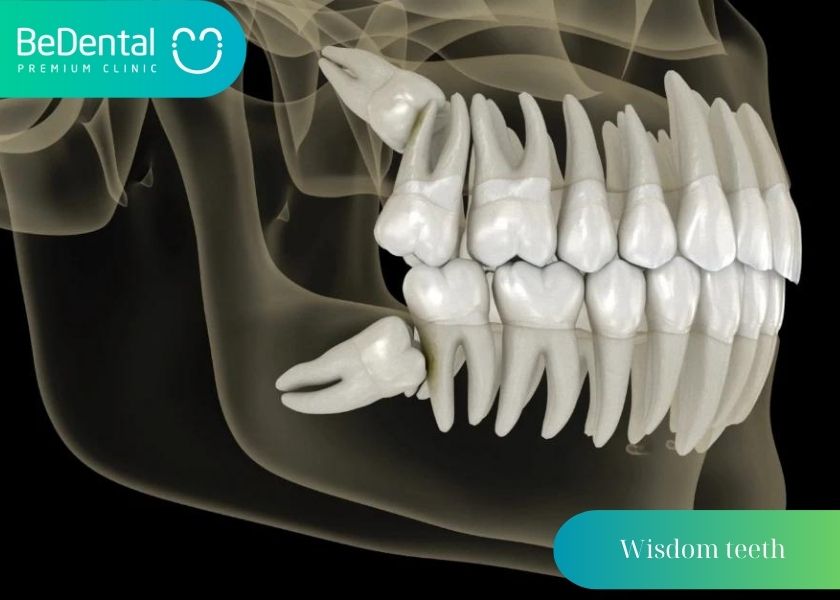
Wisdom tooth can also be impacted, which means they are partially or completely blocked from erupting through the gums, soft tissue, or jawbone. A partial eruption of a wisdom tooth creates a gap through which germs can enter and infect the area surrounding the tooth, resulting in discomfort, edema, jaw tension, and general ill health.
Additionally, due to their uncomfortable placement and hard-to-reach location, partially erupted teeth are more vulnerable to dental decay and gum disease.
How Do I Know If I Have a Wisdom Tooth?
Inquire with your dentist about where your wisdom teeth should be located. Periodically, they could take an X-ray to check for the existence and positioning of your wisdom teeth. Additionally, your dentist could opt to refer you to an oral surgeon for additional testing.
Even before issues arise, your dentist or oral surgeon could advise having your wisdom tooth removed. This is done in order to prevent the need for a more difficult or painful extraction a few years down the road. Since the wisdom tooth’s roots are still developing and the bone is less thick in young people, removal is simpler. Recovery and healing typically take longer in elderly.
How can I tell if my wisdom teeth are erupting?
- Signs of Soreness
The initial symptom of wisdom tooth eruption is pain. Long-lasting and painful, the pain is correlated with whether the wisdom teeth are growing in favorably or not. The discomfort will worsen and remain longer as the tooth begins to emerge and grow. The development of wisdom teeth takes several years and is not continuous; instead, it occurs periodically.
You will experience discomfort when your wisdom tooth begin to emerge because this means that the gum tissue is starting to open, making room for the teeth to emerge. When the pain is severe, it is quite irritating; even when the pain is mild, wisdom teeth eruption still causes severe discomfort. On the side of the wisdom teeth, patients can have severe jaw discomfort, headaches that keep them awake, and intense head pain.
- Signs of red swollen gums (gums), restricting the movement of the jaw.
Wisdom teeth erupt because they break the connections of the gums, which makes the gums swell and turn red. Since the gums surround the entire tooth, they swell up when the teeth emerge until they’re visible and able to be touched, which is also the worst condition of the gum.
The gums will also recover to normal once the teeth have developed gradually. Furthermore, when your gums hurt, you’ll notice that your jaw moves a little more slowly and heavily than usual.
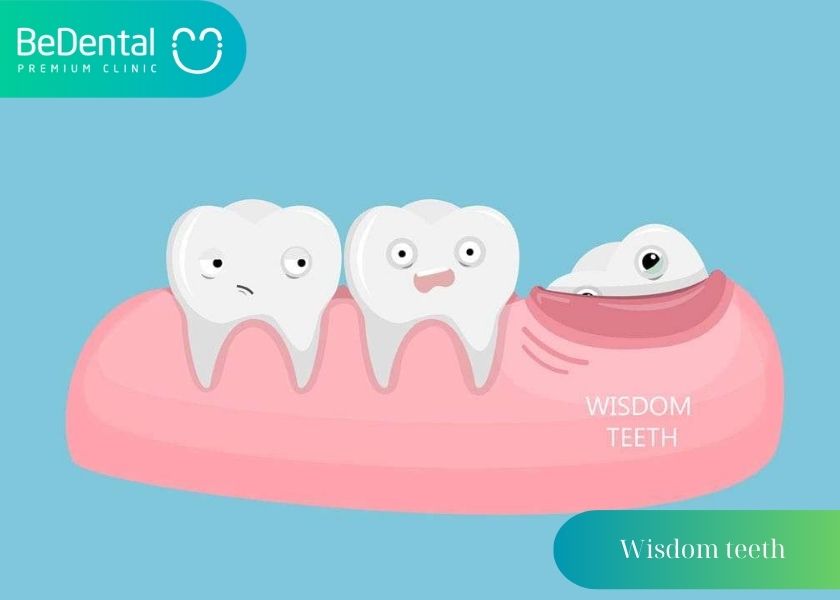
- Signs of fever
It is well recognized that a fever is a sign of an illness or physical discomfort. The degree of an increase in body temperature during teething varies based on the intensity and deviance of the teeth. The fever will be mild if the tooth emerges properly. If wisdom teeth cause very swollen gums, the likelihood of feverish, festering gums is fairly significant. As prescribed by the doctor, we must now be treated with painkilling and anti-inflammatory antibiotics.
- Small white specks
It is obvious when tiny white specks spring up below your second molars that your wisdom teeth are about to erupt. Your new teeth’s tops are the white flecks you can see above the gum line.
Wisdom teeth will grow underground, break the jaw bone, or cause other neighboring teeth to develop if the upper jaw arch does not have room for them to do so. This condition is known as wisdom tooth upper jaw deviation.
The same warning signs apply to wisdom teeth growing in the upper jaw in the lower jaw. A dull aching that lasts for two to three days is typically one of the first signs of wisdom tooth. Throughout wisdom teeth eruption, the pain will frequently return. Very seldom do wisdom teeth that erupt in the upper jaw touch the top seventh teeth; nevertheless, they frequently erupt into the cheek, damaging the cheek mucosa and opening the way for food to get between the wisdom tooth and the seventh tooth. Furthermore, because wisdom teeth are located at the rear of the jaw, they are challenging to clean and food and germs can accumulate there readily.
In addition to being annoying and uncomfortable for you, misaligned wisdom teeth can lead to serious consequences that could threaten patients’ lives. Your “eating well,” “sleeping well,” and overall quality of life will be substantially impacted by misaligned wisdom teeth.
How Are Wisdom Teeth Removed?
Depending on their position and stage of development, your dentist or oral surgeon can remove your wisdom teeth straightforwardly. What to anticipate during your pre-extraction examination will be explained to you by your dentist. As simple as any other tooth, a wisdom tooth that has fully emerged through the gum can be removed.
However, in the case of a wisdom tooth that has just partially emerged over the gums with the major portion still embedded in the jawbone, you have to incise into the gums and cut off a part of the bone that covers your wisdom tooth. Furthermore, the tooth will be taken off in small pieces instead of the whole one to reduce the amount of bone removed.
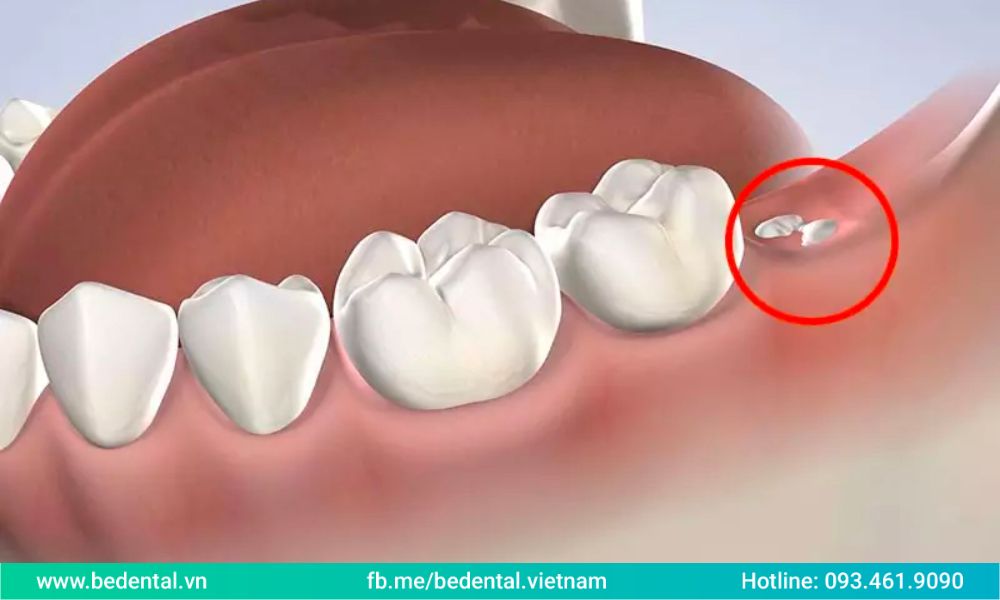
Should extracted wisdom teeth grow without pain?
For many people, the question of whether wisdom teeth should be removed or left untreated. It is not essential to remove a wisdom tooth if it develops normally, but it must be extracted if the wisdom tooth hurts or has a potential to hurt the nearby molars, the gums, or the bones.
Therefore, you should make an appointment to visit a doctor as soon as you notice the symptoms of wisdom teeth eruption. Your doctor will assist in recommending medicine to successfully treat pain. Whether there is discomfort or not, the doctor will inspect to provide the best diagnosis in cases with misaligned wisdom teeth.
Wisdom teeth never perform the function of chewing and frequently cause discomfort, cavities adjacent to them, and misalignment problems. This method can be used to treat teeth that are out of place, stuck, or hidden behind the mucosa. When teeth are severely inflamed, the mouth is not fully opened, blood pressure is high, and those taking anticoagulants are prohibited.
The benefit of the wisdom tooth extraction method used at BeDental is the avoidance of tooth number 8 issues such discomfort, decay in nearby teeth, inflammation, and damage to tooth number 7.
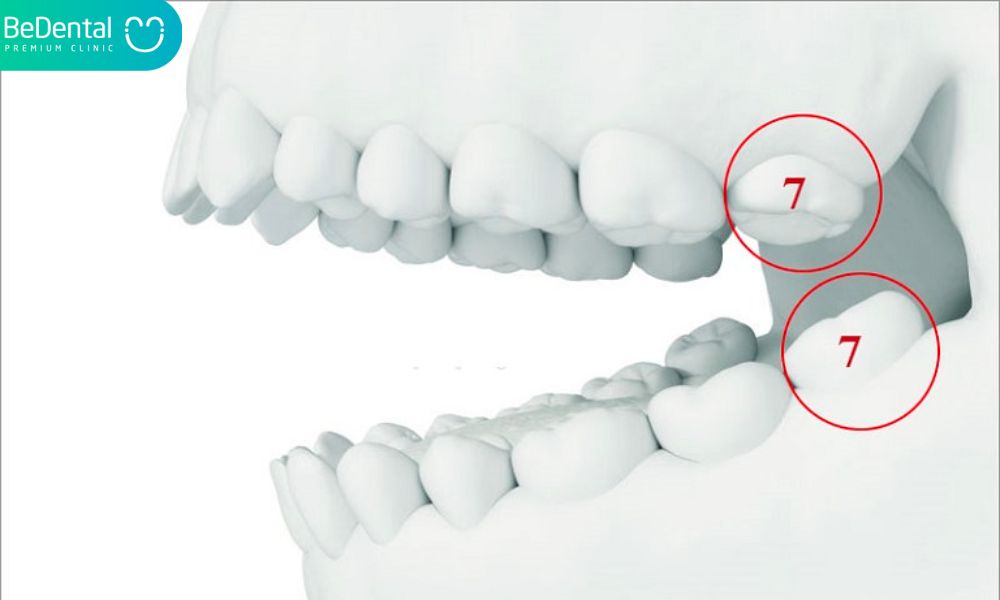
Furthermore, BeDental offers a group of highly qualified, experienced, and passionate doctors that are dedicated to their patients’ well-being. Always prioritize the patient.
What is The Purpose Of A Wisdom Tooth Extraction?
A wisdom tooth extraction is used to treat a variety of dental issues, many of which are related to teeth alignment issues. The following are some indications of misalignment that a wisdom teeth extraction procedure is intended to treat:
- Crooked bite
- Difficulty with mouth opening and mouth closure
- Jaw sensitivity, especially during biting or eating
- Due to crowding, there may be pressure, discomfort, or pain in the teeth.
- The ear or surrounding area hurts
- When opening, shutting, or eating, there is a clicking or cracking sound in the jaw.
- Mild to severe facial discomfort
- By having wisdom teeth removed, you are releasing pressure from the wisdom tooth on the other teeth rather than causing the other teeth to shift.
Furthermore, because wisdom teeth are toward the back of the mouth, they can’t truly affect alignment once they are extracted.
Teeth Shifting: Misunderstanding On Misalignment
Although wisdom tooth removal doesn’t lead to teeth misalignment, it can nonetheless result in subtle movements that some individuals confuse for misalignment. For instance, your mouth has extra room when the wisdom teeth are removed. Because the wisdom teeth are no longer pushing against them, your teeth may shift somewhat as a result.
Your teeth won’t move substantially, though, to the point where they leave big gaps between them. In essence, your teeth will just reposition themselves to where they were before the wisdom teeth put pressure on them. They might not always be misaligning themselves.
Other problems brought on by jaw misalignment include overbites and underbites. This means that an overbite or an underbite cannot occur as a result of wisdom teeth removal.
Crossbites follow the same logic as overbites and underbites. Although they are not caused by wisdom teeth, many individuals feel they may have a crossbite after having them removed because of the minor movement in their teeth, which gives them the impression that their teeth are not aligned as they were before.

However, a wisdom tooth extraction did not result in this misalignment issue. Another frequent issue brought on by wisdom teeth is impacted teeth. This happens when there is not enough room in the mouth for teeth to push through the gum line. A wisdom tooth extraction will fix the misalignment rather than causing it.
Additionally, certain teeth are forced to absorb the majority of the biting force due to misalignment problems. However, when the wisdom teeth are extracted, your teeth will no longer be under tension, which will cause the force of your bite to be distributed more evenly across your teeth.
This results in an odd sensation and is also the reason why some people feel as though their teeth’s alignment has changed. Although removing your wisdom teeth does not alter the position of your teeth, you will undoubtedly notice a change in how your jaw or bite fits. Without the additional pressure, your teeth will fare considerably better.
What can you feel after a wisdom tooth extraction?
After a wisdom tooth extraction, it’s crucial to give your mouth some time to heal. After enduring all the pressure from the wisdom tooth, this will give your teeth some time to relax and adapt.
After a wisdom tooth extraction, it’s common to have discomfort and gum swelling, which can make it feel like the teeth have moved. Your bite will return to normal after the swelling is gone, though.
A full healing phase typically lasts two weeks, although it can sometimes last up to four weeks. However, everyone’s recovery duration will vary.
- During the first 24 hours
Following tooth extraction, bleeding could continue for several hours. Place a piece of clean, moist gauze over the empty tooth socket and bite down hard to manage it. Apply pressure continuously for around 45 minutes. An efficient substitute is a wet tea bag. Tea’s tannic acid aids in the formation of mending blood clots (blood clots function similarly to scab over an open wound). If light bleeding persists, repeat this procedure; if substantial bleeding persists, consult your dentist or oral surgeon.
For 24 hours following tooth extraction, refrain from spitting or rinsing, refrain from “sucking” motions (such as smoking or drinking via a straw), and stay away from hot liquids (such as coffee or soup). These actions may dislodge the clot, leading to the development of a dry socket (see below).
Usually, facial edema develops where a tooth was taken. A piece of ice, wrapped in a towel, should be applied to that part of your face on a schedule of 10 minutes on and 20 minutes off to help reduce swelling. Repeat as required throughout the course of the first 24 hours.
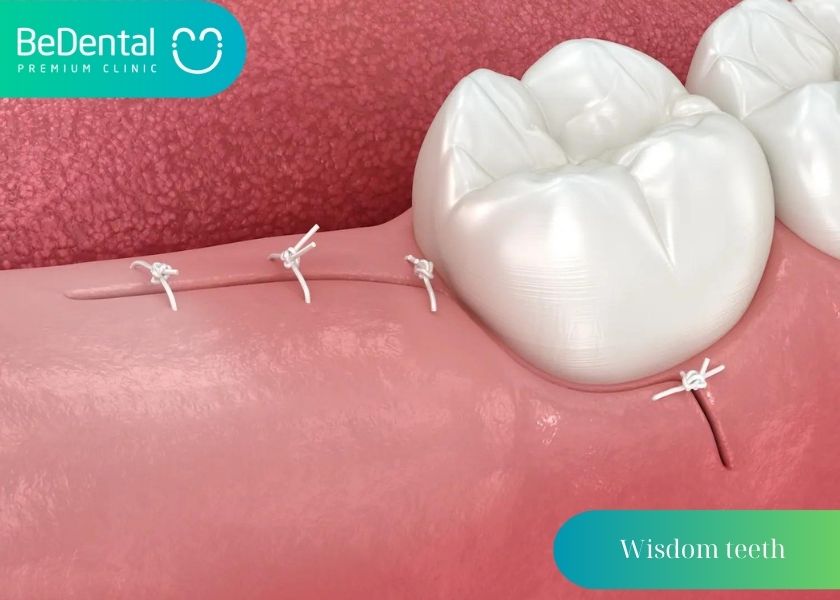
For moderate discomfort, you can take acetaminophen (Tylenol) or ibuprofen (Motrin or Advil). If required, your dentist or oral surgeon may recommend stronger painkillers.
To treat any ongoing infection near the wisdom teeth that will be removed, antibiotics that may have been recommended before the procedure should be taken until the entire prescription has been consumed.
Until all of the anesthesia’s numbness has subsided, you should stick to a liquid diet. For a few days, eat soft meals. If you are also using narcotic painkillers, stay away from alcohol as well.
During the first 24 hours, keep brushing your teeth, but avoid brushing the teeth that directly surround the removed tooth. Restart your mild tooth brushing on day two. Use of commercial mouthwashes should be avoided since they may aggravate the extraction site.
- After 24 hours
After the initial 24 hours of ice, facial edema at the tooth extraction site should be treated with heat. Apply a warm, wet cloth to the region for 20 minutes on and 20 minutes off. Repetition is required.
Remember that edema often reaches its peak 2 to 3 days following the treatment. After meals and before going to bed, rinse your mouth with warm salt water (1/2 teaspoon salt in a cup of warm water). Use only commercial mouthwashes as directed by your dentist.
Your dental health care provider has to remove stitches, if any were used and they weren’t self-dissolving ones, in about a week. Ask what kind of stitches you received if you do need them.
Keep an eye out for dry socket symptoms (described below). Your dentist is the only person who can cure this issue. Following the extraction, full healing doesn’t start for a few weeks to a few months. But often within the first week or two, enough healing has occurred for you to be able to use your mouth comfortably where the extraction was made. What to expect in your particular situation will be explained by your dentist.
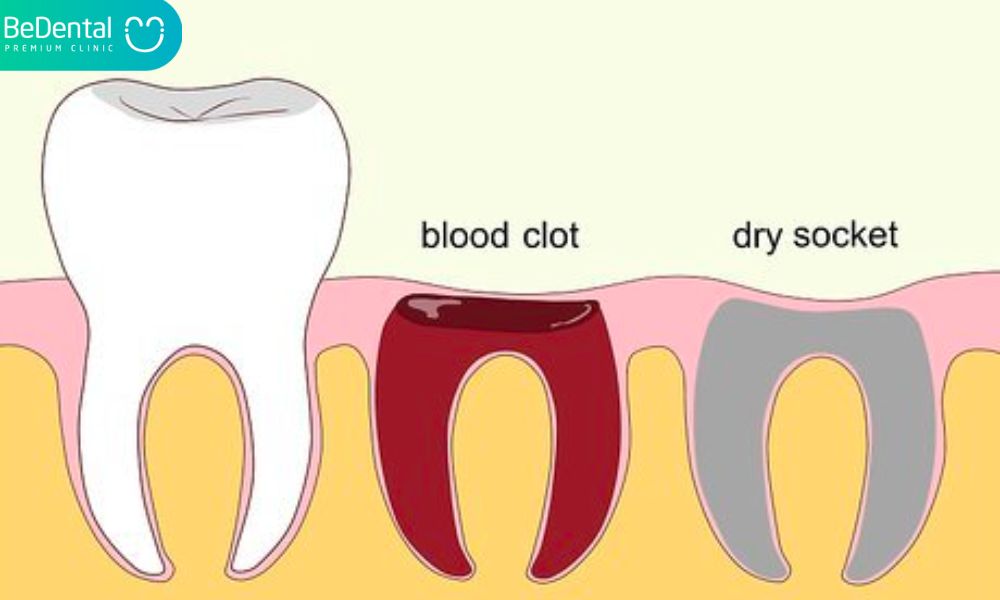
Q&A
What triggers wisdom teeth to grow?
Child development provides the key to the solution. A child’s jaw cannot accommodate the eruption of a wisdom tooth. However, as a child develops, their jaw also expands, creating more space for wisdom teeth to erupt, according to a study published in the journal Science Advances in October 2021.
What age does wisdom teeth come?
The emergence of wisdom teeth typically occurs between the ages of 17 and 25. Some people’s wisdom teeth fall out normally, aligning with the teeth behind the second molars, and emerge without any issues. The mouth is frequently too crowded, nevertheless, for third molars to form correctly.
What if I didn’t remove my wisdom teeth?
Even while not all people require having their wisdom teeth removed, complications might arise if the procedure is postponed. Many patients’ mouths and jaws are smaller than ideal, making it difficult for the third molars to properly erupt. If these teeth do erupt, there may be crowding. You’ll notice that your teeth start to move or overlap.
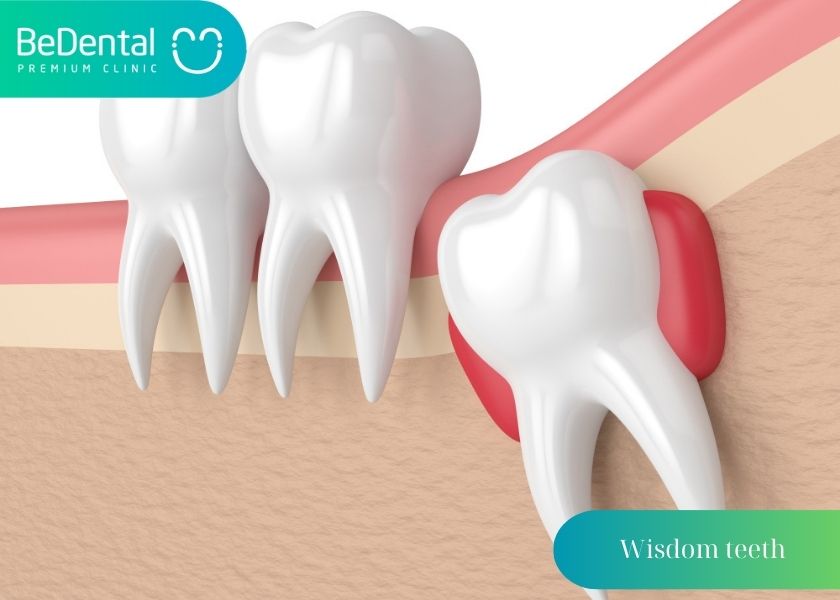
Is it OK to let wisdom teeth grow in?
If your wisdom teeth are healthy and located at the very back of your mouth, they may not require removal. totally integrated (fully erupted) with their opposing teeth properly positioned and biting.
What are the benefits of keeping your wisdom teeth?
It is actually ideal to leave wisdom teeth in place if they are not adversely affecting dental and/or general health. Wisdom teeth that have properly erupted support the rear of the mouth and help preserve jaw bone. The health of the temporo-mandibular joint is improved by this assistance (TMJ).
Is 30 too old to have a wisdom tooth removed?
It is ideal to remove wisdom teeth in teenagers and young adults before the jaw bone has a chance to harden and the wisdom teeth have had a chance to erupt their full-sized roots. Although there may be a lengthier healing time for adults over 30, having their wisdom teeth removed can still be advantageous.
See more
Tooth Sensitivity and 6 Oral Habits to Prevent Tooth Sensitivity
Bad Breath and 6 Common Questions
How to Handle 3 Types Of Dental Emergencies While Working Abroad
Tooth decay and 11 risk factors
Tư vấn chuyên môn bài viết:
BÁC SĨ DƯƠNG THỊ THÙY NGA






Pingback: Dental issues during pregnancy: 5 problems pregnant women can face – Be Dental
Pingback: Wisdom Teeth and 4 Typical Symptoms | Nha Khoa Bedental